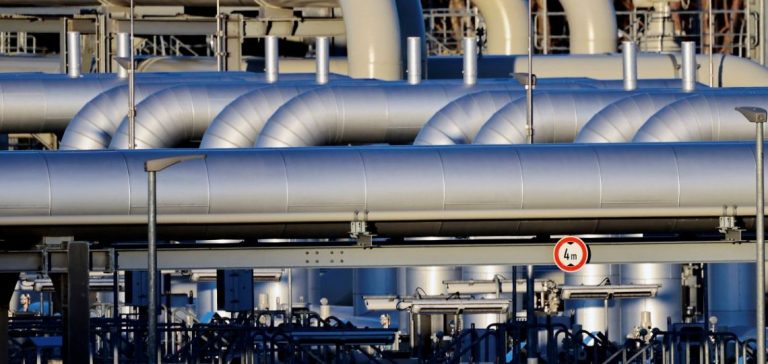Russia’s oil and gas revenues are projected to drop sharply in the coming years. According to a recently published budget draft, the country’s total hydrocarbon sales are expected to decline from 11.3 trillion roubles in 2024 to 10.9 trillion roubles in 2025, representing a notable decrease. This downward trend will continue, with revenues forecasted to fall to 9.77 trillion roubles by 2027, accounting for just 5.1% of the national GDP.
The decline is primarily attributed to a tax relief for Gazprom, the country’s major gas producer. The mineral extraction tax (MET) levied on Gazprom will be reduced by over 30% in 2025, translating into a 550 billion rouble reduction. The government initiated this fiscal adjustment to support Gazprom, which has seen a dramatic drop in exports to Europe since the onset of the war in Ukraine.
Impact on Russia’s Fiscal Balance
The drop in energy revenues, which will reduce from 33% to 27% of total state income, poses a critical challenge to funding public expenditures. The Russian economy remains heavily dependent on its oil and gas income, and any contraction in these flows can jeopardize budgetary stability. This situation coincides with a broader context of international sanctions, limiting Russia’s access to global financial markets and hindering its ability to diversify its revenue sources.
Finance Minister Anton Siluanov emphasized that the goal is to minimize losses while maintaining the sector’s competitiveness. However, the expected revenue decline may force the government to adjust its spending priorities or tap into its foreign reserves to bridge the budget deficit.
Consequences for Gazprom and the Gas Sector
Gazprom, a cornerstone of Russia’s economy, is at the center of this fiscal reform. In 2023, the company reported its first net loss since 1999, a direct result of the steep decline in exports to Europe. Despite this, the state had initially imposed an additional levy of 50 billion roubles per month, a measure set to remain in place until the end of 2025.
The MET reduction aims to ease the pressure on Gazprom, allowing it to stabilize its production and shift its exports toward Asian markets, particularly China. However, the lack of adequate infrastructure to transport these volumes to new markets hinders this strategy. Existing pipelines, such as the Power of Siberia, are insufficient to absorb the volumes previously destined for Europe, creating a risk of underutilization of Gazprom’s production capacity.
Geopolitical and Strategic Implications
The change in Gazprom’s fiscal regime is not solely an economic issue but also a strategic one. By supporting the gas giant, Russia seeks to bolster its influence in Asian markets while mitigating the impact of Western sanctions. However, this strategy has its limitations. Developing new transport infrastructure requires significant investments, which the revenue decline might undermine.
Furthermore, the reorientation of exports to Asia could weaken Russia’s position against competitors like Qatar or the United States, both vying to establish themselves as major LNG suppliers in the region. This could reshape geopolitical dynamics and alter energy flows between Europe, Asia, and the Middle East.
Outlook for Russia’s Energy Market
The projected decline in oil and gas revenues raises concerns about the sustainability of Russia’s economic model. While the MET reduction provides short-term relief for Gazprom, it does not address the sector’s structural issues. The transition to a less hydrocarbon-dependent economy is still a long way off, and the risks associated with sanctions continue to weigh on the industry’s growth potential.
Russia may need to rethink its production targets and energy diversification strategies. Developing new markets in Asia could take several years, and the lack of liquidity might compel the government to explore alternative financing options, such as selling strategic assets.
Overall, the projected decline in Russia’s oil and gas revenues between 2025 and 2027 poses a significant challenge to the country’s fiscal balance. While the tax relief for Gazprom could provide temporary stabilization, the budget’s reliance on hydrocarbons remains a key vulnerability. Russia will need to find a delicate balance between supporting its energy sector and preserving its fiscal resources.






















